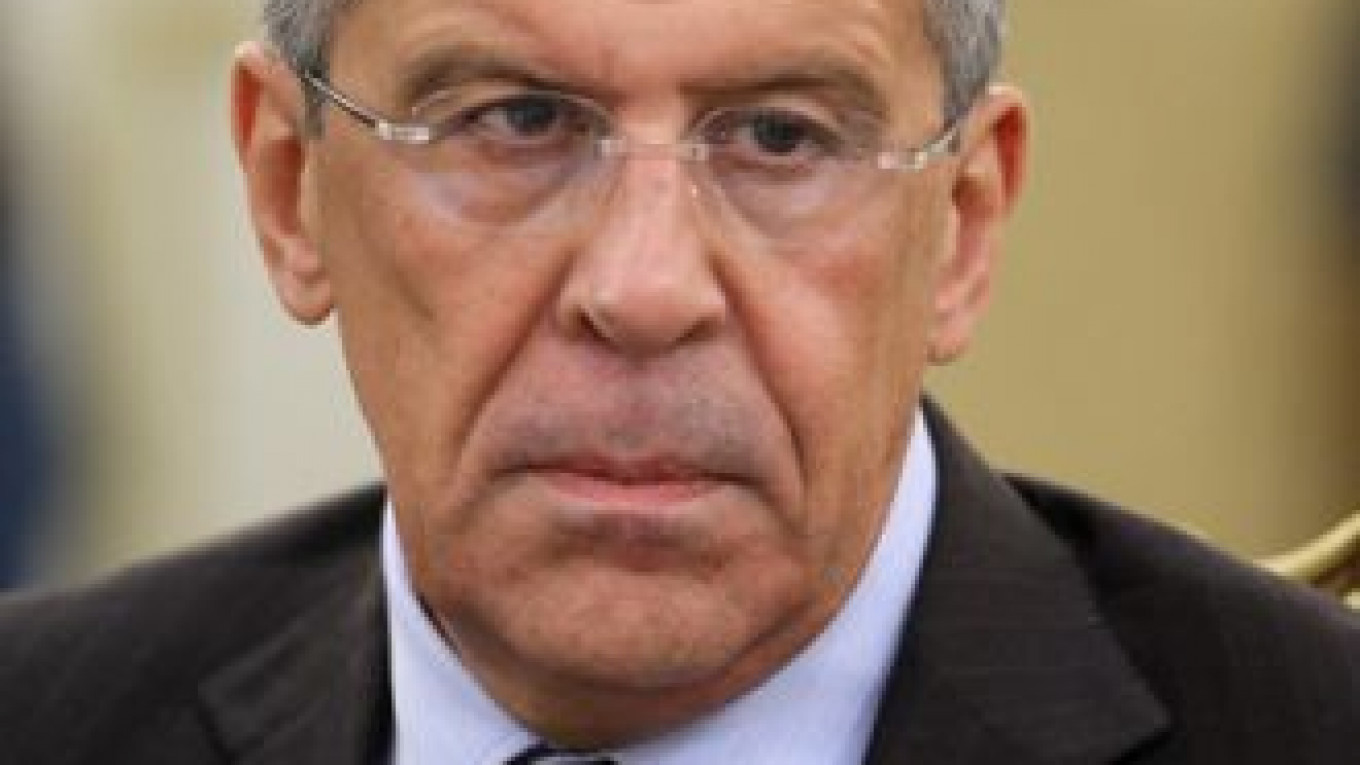Foreign Minister Sergei Lavrov and his newly appointed Ukrainian counterpart, Leonid Kozhara, had a series of meetings on Sunday and Monday to underline the importance of fostering strategic ties between the two countries, with Ukraine's potential accession to the Russia-dominated Customs Union a central topic.
Relations have been strained since Ukrainian President Viktor Yanukovych canceled a Dec. 18 trip to Moscow to discuss Ukraine joining Russia's trilateral Customs Union with Belarus and Kazakhstan. Accession to the union would likely hinder Ukrainian hopes for membership in the European Union, but Ukraine is nevertheless lured by lucrative gas deals and promises of prolific investment.
"There is no doubt that our countries are free to identify their own priorities with regard to the European Union. At the same time, we share a common interest in building a unified Europe with no dividing lines," Lavrov said at a news conference Sunday afternoon.
"We see no contradiction between our countries' rapprochement with Europe and the intensifying multi-format cooperation within the Commonwealth of Independent States. These two developments complement rather than oppose each other," Lavrov said.
The meeting took place at the National University in the town of Chernivtsi, on the border with Romania. The town is widely viewed as a cultural center of western Ukraine, which is well known for widespread resentment of Russian influence among its population.
The area around the university was blocked as the police tried to prevent the protesters from approaching the main building. Members of the nationalist Svoboda party gathered in the center of town shouting, "Ukraine's future lies with Europe," and, "Say no to economic slavery!" the BBC reported.
On Monday the two ministers laid flowers on a monument to popular 19th-century Ukrainian poet Taras Shevchenko. Later they met with the students and faculty of the National University, where both were awarded honorary degrees for their efforts to put the university's architectural complex on the UNESCO World Heritage List.
"Both Ukraine and Russia are interested in unification rather than in deepening a gap between them," Kozhara, who was appointed foreign minister on Dec. 24, said in comments carried by Itar-Tass. "In any case, a common market between the East and the West would meet the interests of all and would be a proper answer to the challenges we face. But for these ends, Europe should overcome ideological barriers. The European split must become history."
Lavrov responded by saying "integration on the continent, both in terms of the European and Eurasian unions, develops according to the same rules. Therefore we must facilitate their pairing rather than oppose these processes."
Konstantin Zatulin, head of the CIS Institute and a former State Duma deputy, told The Moscow Times that Ukraine "has limited time to make a definite choice between the Customs Union and the EU. Its economic situation is catastrophic, and thus it can no longer afford the multi-vector policy it pursued since the collapse of the Soviet Union."
In Zatulin's opinion, the main purpose of the Chernivtsi talks was for the new Ukrainian foreign minister to get introduced to Lavrov and that specific decisions are to be expected at subsequent meetings. Lavrov invited Kozhara to visit him in Moscow in the summertime.
Related articles:
A Message from The Moscow Times:
Dear readers,
We are facing unprecedented challenges. Russia's Prosecutor General's Office has designated The Moscow Times as an "undesirable" organization, criminalizing our work and putting our staff at risk of prosecution. This follows our earlier unjust labeling as a "foreign agent."
These actions are direct attempts to silence independent journalism in Russia. The authorities claim our work "discredits the decisions of the Russian leadership." We see things differently: we strive to provide accurate, unbiased reporting on Russia.
We, the journalists of The Moscow Times, refuse to be silenced. But to continue our work, we need your help.
Your support, no matter how small, makes a world of difference. If you can, please support us monthly starting from just $2. It's quick to set up, and every contribution makes a significant impact.
By supporting The Moscow Times, you're defending open, independent journalism in the face of repression. Thank you for standing with us.
Remind me later.






